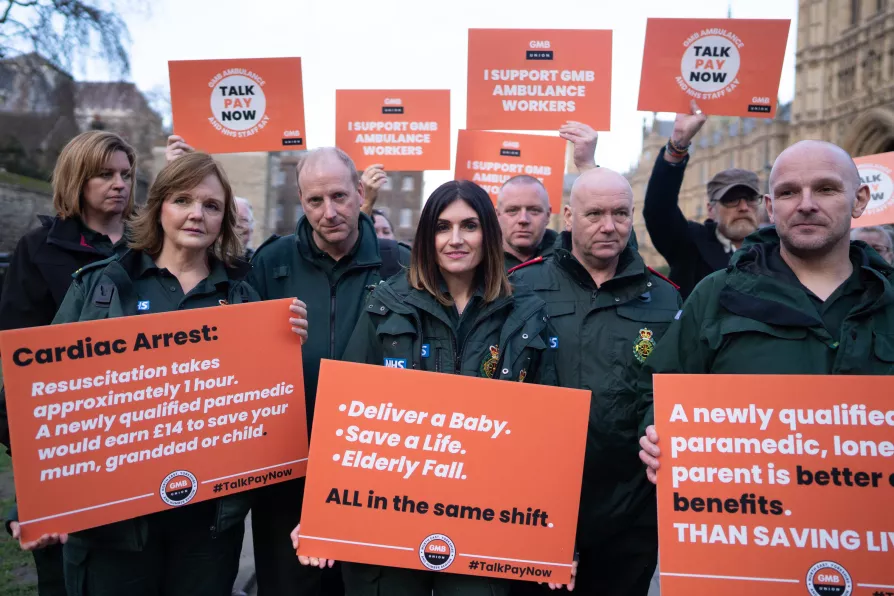As the RMT Health and Safety Conference takes place, the union is calling for urgent action on crisis of work-related stress, understaffing and the growing threat of workplace assaults. RMT leader EDDIE DEMPSEY explains

 Paramedics of the GMB union protest outside Parliament on January 31 this year
Paramedics of the GMB union protest outside Parliament on January 31 this year
ACCORDING to research by the TUC, workplaces with a predominantly female workforce, eg the NHS (77 per cent), teaching (75 per cent) or social care (82 per cent) will be disproportionately affected by the anti-strike Bill intended to enforce minimum service levels.
This means that women are more at risk of being sacked for taking strike action during disputes.
The pay gap between men and women currently stands at 14.9 per cent and women aged between 50 and 59 have the highest pay gap of 20.8 per cent.

Deep disillusionment with the Westminster cross-party consensus means rupture with the status quo is on the cards – bringing not only opportunities but also dangers, says NICK WRIGHT

ROS SITWELL reports from the Morning Star conference on ‘Race, Sex and Class Liberation’ last weekend












